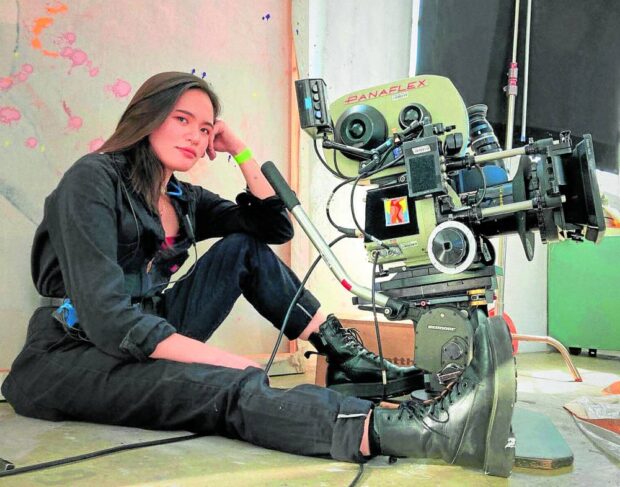US-based Filipino cinematographer Bettina Campomanes on role of DoPs

Bettina Campomanes –BETTSOCAMPO.COM
While moviegoers know of cinematographers and their involvement in filmmaking, some of them only have a vague notion of what the job actually entails.
Some seem to think that cinematography is just about operating a camera. They’re not wrong. But this important aspect of filmmaking goes beyond that as United States-based Filipino cinematographer Bettina Campomanes pointed out.
More than coordinating and directing a team of cameramen and lighting crew, cinematographers—or directors of photography (DoPs)—are responsible for a film’s overall aesthetic and visual storytelling.
“Many people either don’t know that this job exists, or they think that our job is just to operate a camera … But a lot of our job is about helping the story come to life by contributing ideas that will tie everything together visually whether through composition, light or frame size,” she told the Inquirer in an email interview.
In fact, few people know that in any given film, there are shots conceived not by the director, but by the cinematographer.
“The difference between a director and a director of photography can be a gray area. They’re so closely knit that it can be hard to pinpoint their [respective] visual contributions at times,” said Bettina, who recently earned her master of fine arts degree at the American Film Institute in Los Angeles.
“My job is of great importance. Not only does it balance the technical aspects of a narrative project, but it also helps translate those into reason,” she added.
Bettina, who also works as a writer-director on narrative projects, was an honoree at the 2019 New York Cinematography Awards for her film “Muse,” and was a finalist at the 2020 Asian Cinematography Awards. Her growing filmography includes original short films like “Hiya,” as well as the “9/21” video series of Emmy-nominated writer-comedian Demi Adejuyigbe.
READ: Master cinematographer Romy Vitug dies at 86
She has worked with indie music artists like Dounia, Miel and Dear Ears. She shot alternative band’s Sure Sure’s music video for “123,” which was hailed best music video at the 2022 Los Angeles Cinematography Awards. Among her past clients are MAC Cosmetics and the National Collegiate Athletics Association.
Bubbly, dark style
But no matter the kind of project she’s working on, her approach remains consistent, guided by such questions as: “Why is this character making this decision?” “What is the tone of this scene, and how can I shape light and frame in such a way that can complement this moment or transition?” “How can we bring these five shots together to make one meaningful shot?”
If she were to describe her visual style, Bettina said it would be a combination of “bubbly” and “dark.” But ultimately, filmmaking relies on teamwork, and she sees to it that she shoots according to the director’s tastes.
“I don’t like things particularly bright and I love being able to control how much light is in the frame when I can. And when I do, it comes out a bit brooding yet colorful,” she said. “But great ideas don’t come from just one person. We guide each other toward the right creative direction.”
This aesthetic quality can be observed in “Hiya,” which Bettina holds dear to her heart because it’s the first narrative project she wrote and shot herself. The short film, which she plans to enter into the festival circuit soon, is about being “brought up in a religious household” and the notion that “covering yourself up” is imperative to achieve spiritual fulfillment.
“I can’t wait for a public release soon,” said Bettina, who realized that she wanted to pursue filmmaking after being exposed to the realities people at Smokey Mountain live in during an outreach trip when she was in fifth grade.
Return to PH
What is it like to be a Filipina filmmaker in the US? Is there a growing community or support system?
“I feel more connected to the Filipino film community today than I did five years ago, so I know that there is progress in the US now, for sure. Oftentimes, it does feel strange to be grouped with Filipino-American filmmakers, only because Philippine-born and -raised women behind the camera like me are rare,” she said. “I wish there were more transplants like me, because I don’t really know what it’s like to be raised in America. But to be respected to such a degree, despite not being a citizen, is really heartwarming to me … It’s like having a family somewhere, wherever I go.”
While the bulk of her work at the moment is in the US, Bettina does look forward to returning to the Philippines to work on some projects. While digital media and streaming have made cinema more accessible, they have inadvertently made going to theaters less popular. And this is something Bettina longs for.
“I aspire to go back home and create original content that will hopefully make people want to sit down and rediscover the art of watching films together,” she said.